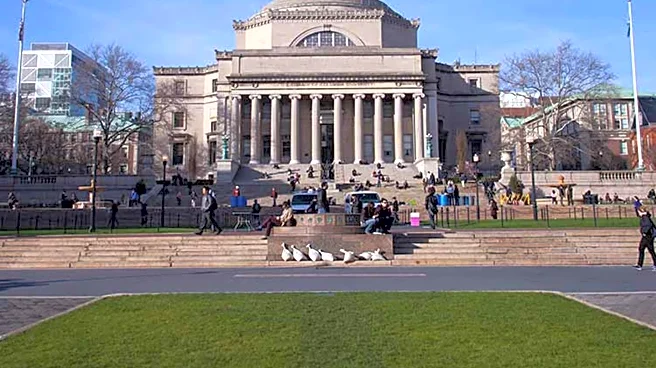What is the story about?
What's Happening?
As the fall semester approaches, resident assistants at Columbia University are undergoing training and sharing their experiences of dorm life. The resident assistants, including Molly Soczka, Camden DeGarmo, and Naluwa Adeyooye, discuss the benefits of living on campus, such as proximity to classes and the opportunity to form lasting friendships through community events. They highlight the importance of independence gained from apartment-style dorms while maintaining a supportive community environment. Challenges such as balancing coursework and event planning are acknowledged, but the RAs remain motivated by the rewarding aspects of their roles.
Why It's Important?
The insights shared by Columbia's resident assistants underscore the significance of on-campus housing in fostering a sense of community and independence among students. This environment helps students transition into adulthood by learning essential life skills like cooking and cleaning, while also providing a safety net through organized events and support networks. The role of RAs is crucial in creating a welcoming atmosphere that encourages social interaction and personal growth, which can positively impact students' overall college experience and mental well-being.
What's Next?
Columbia University is continuing to evolve its housing programs, including the Community Programming Council, which allows students to host their own events. This initiative aims to enhance leadership skills and community engagement among students. The university is also expanding its housing options, such as the honors housing and the 21-up community, to better accommodate diverse student needs. These developments are expected to further enrich the campus experience and strengthen the community bonds within the residence halls.
Beyond the Headlines
The evolving housing programs at Columbia University reflect broader trends in higher education, where institutions are increasingly focusing on student well-being and community engagement. By offering free therapy services and encouraging participation in community events, Columbia is addressing mental health challenges and promoting a supportive environment. These efforts highlight the ethical responsibility of universities to provide holistic support to students, preparing them for both academic success and personal development.















